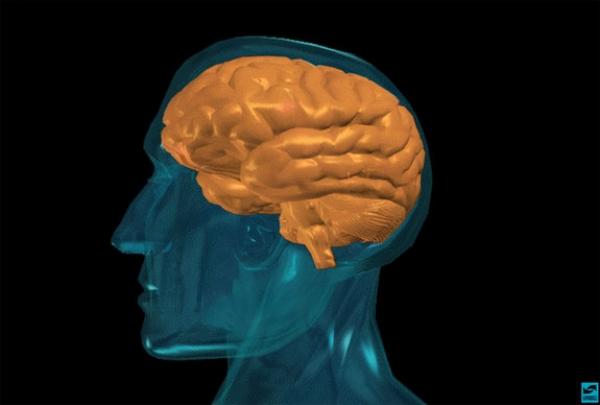The most puzzling mysteries of the mind
 Bashny.Net
Bashny.Net

Consciousness
Waking up in the morning, you can see the sunrise, hear the birds singing, rejoicing easy breath of fresh morning breeze ... in other words you are aware of its existence. Since ancient thinkers have tried to find an explanation. Neuroscientists have decided to find out why the brain processes lead to subjective perception, but instead of the responses received even more questions.
Freezing
The elixir of eternal life is not yet discovered, but who knows, maybe in the future, mankind will learn to treat, so far, incurable diseases and prolong life. Cryo-freeze, it could possibly give the people living in the moment, a chance to get a ticket to the future. Centers cryo-freeze, such as Alcor Life Extension Foundation in Arizona, keep the body in vats of liquid nitrogen at a temperature of -195 degrees Celsius. The center is stored body late legendary baseball player Ted Williams. All "clients" Alcor are stored upside down, so that in case of leakage of nitrogen, the brain is in a cold liquid.
To date, scientists have not figured out how to safely defrost the man, but also a cure for all diseases have not yet invented.
The mystery of death
Why do we age? We are born perfectly tuned mechanism with a complete set of tools for repair and restoration. But we age, our defense mechanisms weaken. Body can no longer fight illnesses as before. There are two theories why this is so:
1. Aging can be genetically specified and, in some sense, a useful process.
2. Less optimistic version says that aging is a gradual destruction of cells.
Some scientists believe that, ultimately, we will be able to develop a method to delay aging, capable of increasing life expectancy in half.
Nature versus environment
In the long struggle between the belief that the person behaves as he "destined" genes and the fact that behavior is shaped by society, scientists have come to the conclusion that one does not negate the other. We have little control over human traits inherent in our individual genes, but studies show - the pressure from the public, to some extent, shapes us.
Logic
Laughter is the least understood of human reaction. During laughter activated 3 parts of the brain "thinks" - it helps to understand a joke, "motor" - forcing our muscles and "emotional" - causes euphoria. But scientists have failed to understand why some people laugh at silly jokes, and the other seems ridiculous horror film.
John Morreall, one of the first researchers of humor at the College of William and Mary, found that laughter - it's hilarious response to the strangeness of the stories that are not subject to conditional expectations. Other researchers think laughter signal to another person that the action is "a joke." One thing is clear: Laughter makes us feel better.
Memories
How can a person save life experiences? Using the technique of figurative representation, scientists were able to reveal the mechanism responsible for creating and storing memories. They found that the hypothalamus may act as a repository for the memory. But this storage area is not so biased. It turned out that the real and false memories activate the same areas of the brain.
Jetlag
The biological clock - the suprachiasmatic nucleus located in the hypothalamus of the brain, the body programs to comply with the 24-hour rhythm. The most obvious effect is the change in the circadian rhythm of sleep and waking state, but the biological clock also affect digestion, body temperature, blood pressure and hormone production. Scientists have found that bright light can adjust or bring down the rate by adjusting the hormone melatonin. Under active debate around the question of whether or not melatonin supplements can prevent jet lag syndrome - drowsiness, malaise experienced when flying across time zones.
Phantom feelings
Approximately 80% of amputees experience feelings such as warmth, itching, pressure and pain originating from the missing body parts. People experiencing these feelings, known as "phantom limb," feel lost as part of a joint of the body. One explanation is that the nervous zone, where the gap with the amputated body creates new connections to the spinal cord and continue to send signals to the brain as if the lost limb is still there. Another explanation is that the brain is "automatically" acts as if the body was in perfect order - that is, the brain perceives the body with all the parts together.
Sleep
We spend more than a quarter of his life in a state of drowsiness or sleep. But the causes incoherent dreams, still remain a mystery to us. Scientists know one thing: sleep is a key factor in the survival of mammals. Long-term insomnia can cause mood swings, hallucinations, and in extreme cases, death. There are two states of sleep - without rapid eye movement (slow phase of sleep, SBBDG), during which the brain is in a state of low metabolic activity, and rapid eye movements (fast phase of sleep, SBDG), during which the brain is very active. Some scientists believe that SBBDG gives respite body and saves energy, like hibernation. SBDG can help expand the memory on the shelves. However, this theory has not been proven, and dreams of the fast phase is not always associated with memories.
Dreaming
If you ask 10 different people what dreams mean, you probably get 10 different answers. Scientists are still unraveling this mystery. One option: the dream train brain stimulation transmitting synapses between its cells. Another theory is that people dream about the actions that they could not make during the day, and sleep can help consolidate thoughts and memories. Scientists agree on one thing, we see a dream in deep sleep, called sleep with rapid eye movements.
Tags
See also
Top 10 most mysterious and controversial audio books on psychology and esoteric
Nazca - the greatest mystery of the world
20 of the most mysterious people of the world, the origin of which is still debate
The five secrets of the most mysterious paintings of the Tretyakov gallery
Mushroom energy: the biggest mystery
Why giant beetle Woodman-titanium is the most mysterious creature?
8 of the strangest mysteries of the cosmos
The most mysterious radio broadcast in the world
About interdimensional travels
How do we choose a partner

















